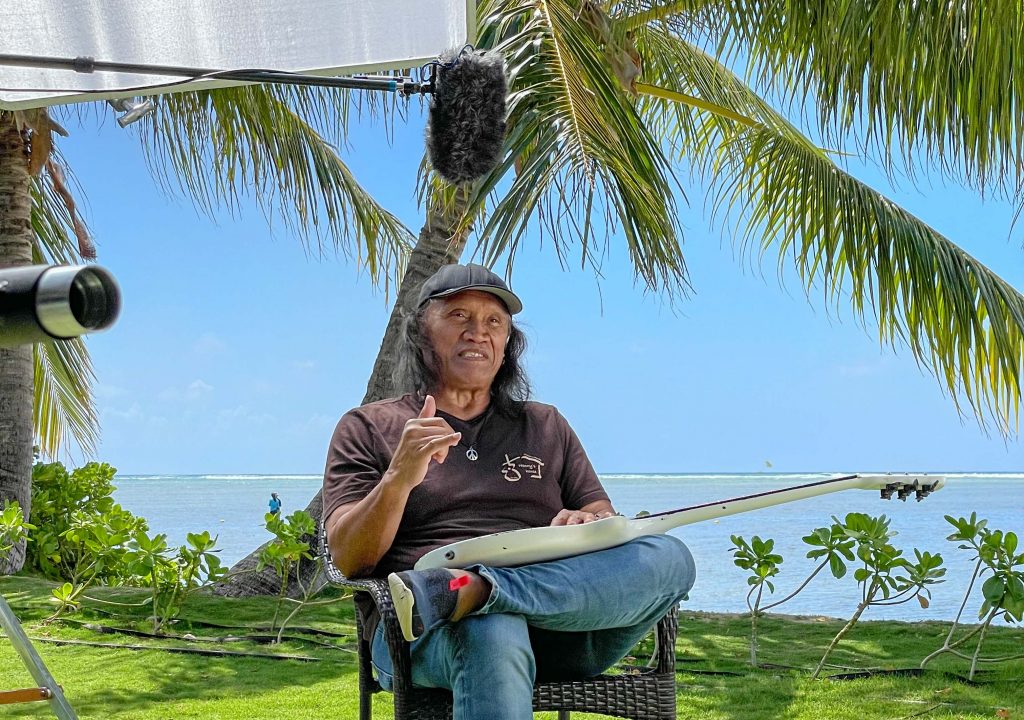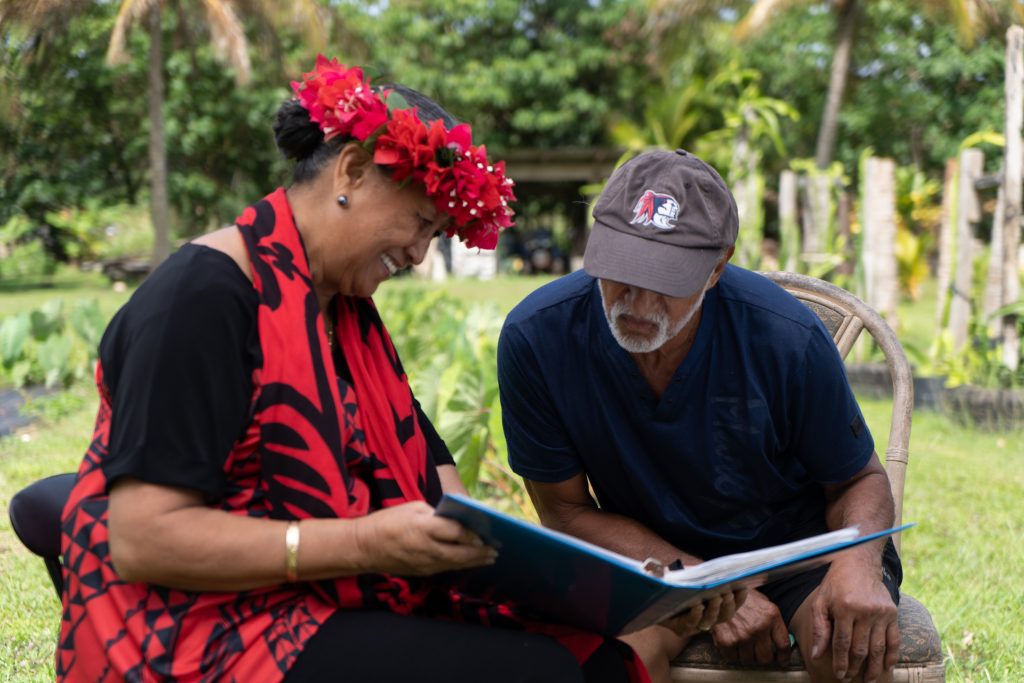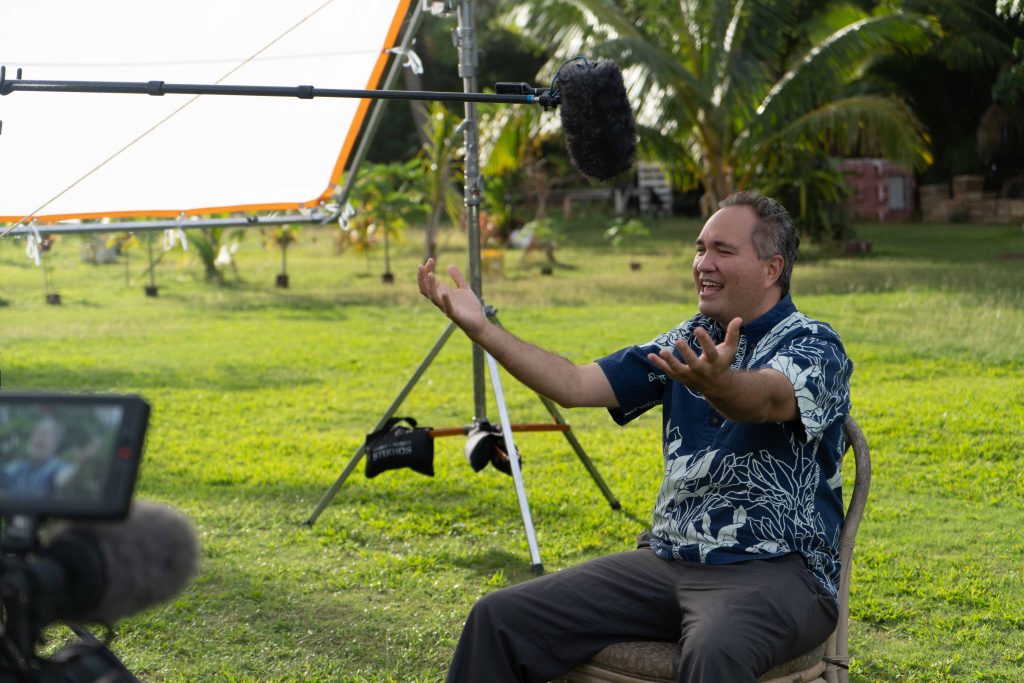Art Submissions & Cameo Groups Sought for Documentary: ‘Shaka, the Power of Mana’
Bizgenics, a Hawaiʻi-based education nonprofit, is seeking art submissions and cameo groups for its crowdsourced education documentary titled: “Shaka, the Power of Mana.”
This true story chronicles how one man’s disability became the global symbol of fearless living, positive thinking and the Aloha Spirit. The project recently received a green light through initial funding and contribution of cultural experts by Kamehameha Schools.
Film and television director Bryan Spicer, who was a co-executive producer on numerous TV episodes of “Magnum P.I.” and “Hawaiʻi Five-0,” has joined the documentary production as Co-Executive Producer. Grammy-nominated musician Henry Kapono is serving as Music Producer.
The Shaka gesture is known the world over as the symbol of Hawaiʻi. Yet despite global recognition, its origins and deep meanings remain largely unknown, even in Hawai‘i. The story begins with Hamana Kalili, aka Tutu Hamana, a respected community leader from Laʻie who lost three fingers while working at the Kahuku Sugar Mill, circa 1910.
Various accounts have been captured from Kupuna who as Keiki, knew and learned from Tutu Hamana. Now elderly, the Kupuna fear the loss of the story. Interestingly, the word “Shaka” wasn’t used until the 1960s when Okinawan plantation workers began associating the gesture with Japan’s Shakyamuni Buddha message of “Fear not. It’s OK, go for it.”
According to Executive Producer and Writer Steve Sue: “We’re humbled to be entrusted by the Kupuna of Laʻie to tell this amazing story. For years, they kept it secret. But with the advancing age and in several cases, the passing of Kupuna, there is now a sense of urgency to capture this iconic story. These Kupuna learned directly from Tutu Hamana, so it’s imperative that we preserve their oral history. Through this quest, we’re discovering that Tutu Hamana’s life lessons, wisdoms and values are more relevant than ever to help the world heal during challenging times.”
Co-Executive Producer Spicer added: “We are excited to be a part of this project. It will help bring inspiration and education to the world about the origins of the Shaka and the power of Aloha.”
Sue said on the global stage, “This is Hawaiʻi’s most iconic story.
“As such, we bear a great responsibility to deliver it as a timeless classic; do it 100% authentic; and involve the people. This will likely be a cornerstone of Hawaiʻi’s cinematic footprint for a long time, and we only get one chance to do it right.”
To achieve these goals, the production team created a unique “democratized filmmaking” approach designed to involve as many of Hawaiʻi’s people as possible. This includes art submissions by students, cameos by groups, and sponsorship by companies and organizations. Potentially thousands of people around the world will participate remotely in creating content for the film.
“No one should look back in hindsight wishing that they should have jumped this train,” Sue said.
Thousands of Hawai‘i K-12 students as well as adults are expected to participate in submitting Shaka art for use in the film or in promotions. This includes Shaka selfies, animations and product designs like stickers, t-shirts, and momentos. Participants whose content is used will receive end credits. Submission categories, design briefs, and a submissions upload link are provided at www.shakafilm.com/submit-art.
Groups are invited to register free to be eligible for cameos in the film. Groups may include companies, schools, organizations, families, friends, sports teams, clubs, government agencies or any other group that wants to appear together in a cameo. Like donating points to a favorite high school at the grocery store, donors to the film dedicate giving points to a group of their choice.
Aggregated giving points qualify groups for Supporter Packages that include cameos and end credits. Groups may include as many people in their cameo as desired and can promote giving to their group points. Further, any donor that contributes at least $100 gains the right to a personal end credit in the film. Groups may register at www.shakafilm.com/groups.
Sponsors are also sought to fund budget options that increase the fit and finish of the film. Themes of interest to sponsors may include Hawai‘i culture, Japanese connection (Shakyamuni Buddha from Nara through Okinawa), surfing and extreme sports.
Sponsors may also be interested in Shaka-themed visioning, team-building, morale-boosting exercises and facilitation services that are being created by Bizgenics for schools, companies and organizations. These exercises are designed as a call to serve one’s community by applying the Shaka’s positivity and Aloha Spirit. Sponsor supporter packages may be viewed at www.shakafilm.com/sponsor.
Production began in May of 2019 with recorded interviews of Kupuna who knew Tutu Hamana, however the film was put on hold due to COVID-19. Now back in full production, Director Alex Bocchieri, Editor Deborah Miller and Associate Producer Bryson Chun are leading a production team that is coordinating interviews, historical footage, reenactments, animated sequences and crowdsourced content.
Additional plans include a reenactment of a Hukilau in Laʻie possibly including a launch of the Iosepa, sister canoe to the Hokulea. Filming is expected to culminate in a Shaka Contest Festival at Sunset on the Beach in Waikiki in the Fall, which will hopefully mark an end to COVID-19 and herald a welcoming back of visitors and the economy. The target release date is January 2022.
To learn more about the project, visit shakafilm.com.














_1768613517521.webp)



